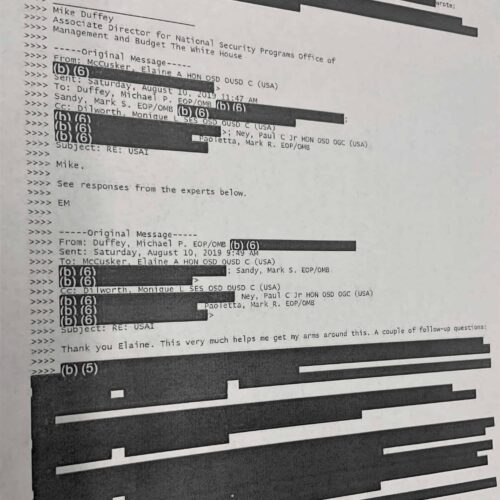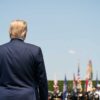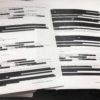Introduction
The Center for Public Integrity is a nonprofit newsroom that investigates betrayals of public trust. Sign up to receive our stories.
The Trump administration has rejected the Center for Public Integrity’s request that the government immediately disclose key communications between the Pentagon and the White House about the president’s summertime interruption of military aid to Ukraine.
The Justice Department instead promised to defend its censorship of those communications in future court proceedings that are part of Public Integrity’s ongoing Freedom of Information Act lawsuit against the Trump administration.
“Defendants decline your request to make an additional release, and will defend the withholdings” in additional court proceedings, Department of Justice attorney Amber Richer wrote. The proceedings are scheduled to begin late this month and conclude no earlier than the end of February.
“The federal government’s response, while hardly surprising, is nevertheless disappointing,” said Susan Smith Richardson, CEO of Public Integrity. “President Trump last year declared himself the most transparent president in history. This was an opportunity for his administration to put actions behind those words, and it missed the mark by a mile.”
Public Integrity on Jan. 3 demanded the Trump administration immediately provide unredacted versions of nearly 300 Ukraine-related documents it had previously received in heavily redacted form. The request was prompted by website Just Security publishing previously blacked out portions of these communications, which it obtained through unofficial channels.
Public Integrity attorney Peter Newbatt Smith argued in his Jan. 3 letter that since portions of the Ukraine-related information sought have “already been reliably reported, their release would not cause foreseeable harm” to the government’s interests.
The content in question — which the government tried to keep secret, but was confirmed as authentic by Public Integrity — made clear that Trump’s halt to the aid ignited increasingly strident protests during the summer from Defense Department officials, who said in emails to the White House that it could be illegal and that Congress should be notified.
Trump is facing a Senate impeachment trial centered on whether the president abused his power by allegedly delaying military aid to Ukraine to pressure officials there to investigate a political rival, former Vice President Joe Biden.
And during the past three weeks, the government’s decision to censor the passages of the emails it released to Public Integrity has become a decidedly political issue.
Senate Minority Leader Chuck Schumer, D-N.Y., for one, has cited the information the Trump administration released to Public Integrity in December as one of several events that “have significantly bolstered the need to hear from these witnesses and obtain the related documents.” Sen. Majority Leader Mitch McConnell, R-Ky., has argued to the contrary that no further investigation by Congress is needed.
Some litigators have said that Just Security’s partial, unofficial unmasking of the censored passages suggests that the Justice Department improperly withheld material from Public Integrity.
Anne Weismann, the chief FOIA counsel at Citizens for Responsibility and Ethics in Washington, a nonprofit group frequently critical of Trump, wrote in Just Security on Jan. 9 that the content of the censored passages suggests the government was not trying to “protect an internal deliberative process, but to keep from the public compelling evidence of the president’s misconduct and abuse of power and the complicity of administration officials in his actions.”
Weismann said that in her view the exemption “disappears altogether when there is any reason to believe government misconduct occurred.”
Read more in National Security
#UkraineDocs
#UkraineDocs update: Government files response to Public Integrity lawsuit
#UkraineDocs
GAO report backs private Pentagon conclusions that Trump broke the law on Ukraine
The holdup of aid to Ukraine falls ‘squarely’ into the definition of an illegal act, congressional auditors say, addressing a matter at the heart of a Center for Public Integrity lawsuit




Join the conversation
Show Comments